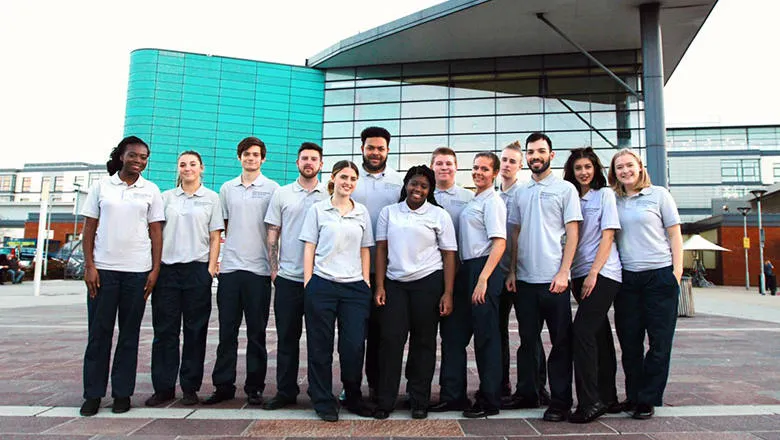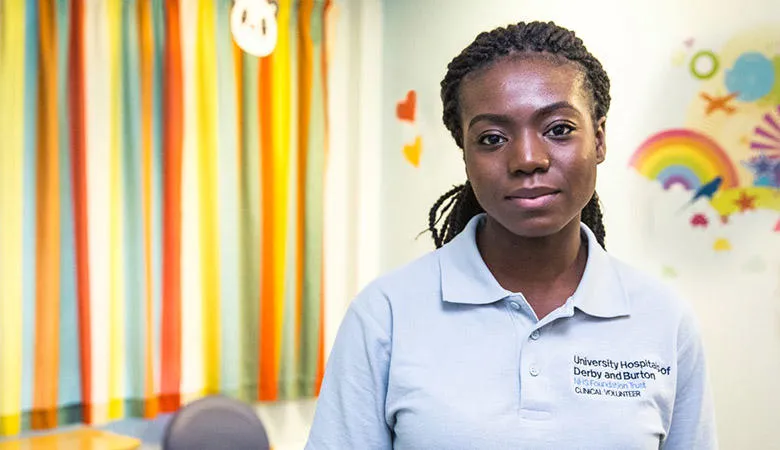Young people can be change agents. I wanted to show this, even if I had to step outside my comfort zone to do so. I came to the wards with a global health and policy background, but I wanted to be at the frontline and get an insight into what happens on the delivery end of policy implementation – by getting experience of shifts and speaking to the patients. This, I believe, can better inform my policy work.
Deborah Olubiyi
08 October 2019
GHSM student joins volunteers delivering frontline NHS care as part of pioneering hospital experiment
Global Health & Social Medicine graduate, Deborah Olubiyi recently appeared on the BBC’s The Hospital Experiment looking after patients and assisting staff in busy NHS wards.

For Deborah Olubiyi, the six-week experience at the Royal Derby Hospital was a great way to gain practical experience to complement the theory and policy knowledge she had learnt during her degree.
None of the 14 volunteers on the BBC’s The Hospital Experiment, aged between 18 and 24, had worked on a hospital ward before and some were yet to have a full-time job of any type. They were given classroom training to absorb how to complete basic observations, such as blood pressure and dementia care. The volunteers were then assigned a clinical team and under direct supervision, applied their newly learnt skills in maternity wards, A&E, paediatrics, elderly care and more
As a recent Global Health & Social Medicine BSc graduate, Deborah had picked up the theory to inform her dream of working in health management and policy. However, volunteering in the hospital helped her to gain practical experience on the frontline.
In episode one, Deborah was sent to the colorectal ward, where patients are treated for diseases of the stomach and colon. Her first assignment was to assist in cleaning a leaking stoma bag. Later in the series, we also see her building rapport with the patients as she cared for them, including those in the end of life ward.

"My degree allowed me to explore both the social and biomedical science perspective to health. I think it is important to have a holistic understanding of what industry you are going into and not just rely on classroom-based learning. By partaking in the social experiment, I experienced the clinical side of things and now have the ability to tap into those different spheres."
It may have been a challenge for Deborah to deal with a leaking stoma bag or to know how to care for someone at the end of their life, but she was equipped to recognise the importance of the NHS in the UK and how it impacts multiple lives on a daily basis.
"During my degree, I learnt about the different types of healthcare systems around the world, so I was able to walk into the NHS understanding the benefits and shortfalls of the NHS. I quickly learnt that the NHS is a national treasure – because the ability to have free healthcare at the point of need is a privilege that not many countries have.
"The best thing about the entire experience for me was knowing we were making an impact in the hospital. I really liked coming into contact with all the patients and all the people that I met. I want to thank the staff at Royal Derby Hospital and the BBC for giving me this opportunity."
So what does Deborah see herself doing next?
"I would like to do a master's in the near future. Soon, I will also be starting a new role at Parliament. I definitely see myself in health management and policy, where I feel I can make the greatest impact."
The Royal Derby Hospital announced that it will be adopting the clinical volunteer training programme.
